Media
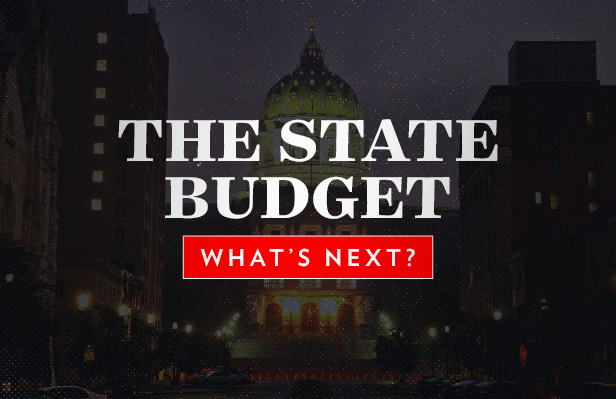
Charting Pennsylvania’s Budget Future
Believe it or not, the state is approaching the unofficial start of a new budget cycle. Gov. Wolf plans to roll out his proposal for the 2016-17 budget on February 9, leaving Pennsylvanians to debate two budget proposals for two different fiscal years simultaneously.
If the governor's past budget proposals are any indication, tax hikes on working people will be a central piece of both budget debates. Preventing any tax increases in this year’s budget and doing the same in next year’s budget will be a challenge.
According to an Independent Fiscal Office (IFO) report, Pennsylvania’s projected deficit will grow in the next five years absent any spending restraint. As the chart below indicates, revenues will continue to rise, but at a slower pace than spending growth, which is driven primarily by welfare spending and pension payments.
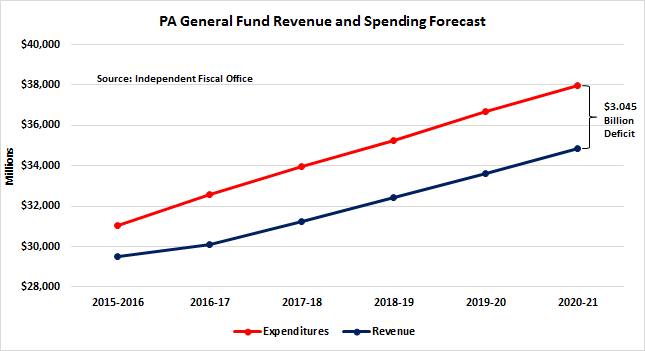
Human Services' budget needs (welfare) will quickly overwhelm taxpayers unless significant reforms are adopted. For the first time in recent history, Human Services' expenditures will make up the largest portion of the General Fund Budget, surpassing education as the most expensive item.
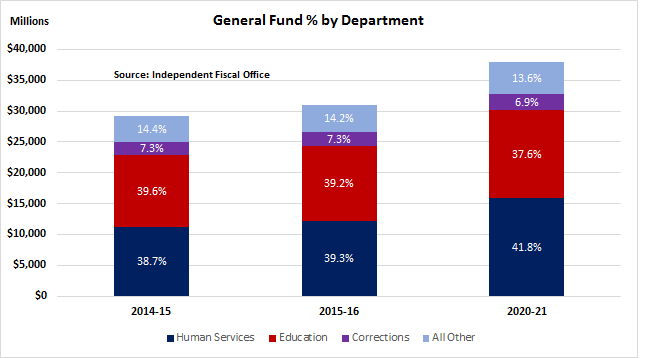
Although spending on Human Services is projected to exceed education expenditures, Pennsylvania's public school system is still in no way affordable for taxpayers. Pension payments—the driver of education expenditures—will continue to rise. However, by 2018-19, the growth in pension payments begins to stabilize.
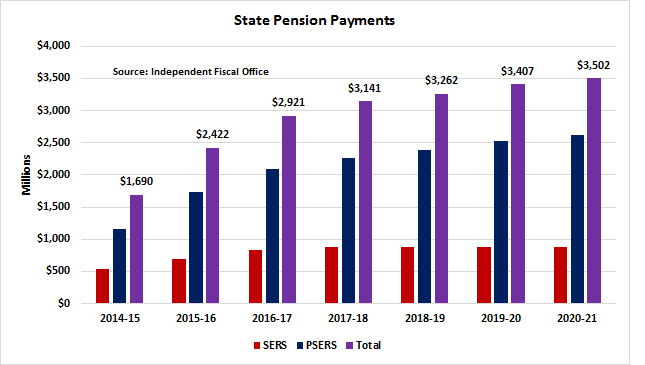
Demographic shifts are another notable trend. Pennsylvania is home to a large number of seniors, and if IFO projections hold true, the state will collectively age in the coming decade, adding to the senior population.
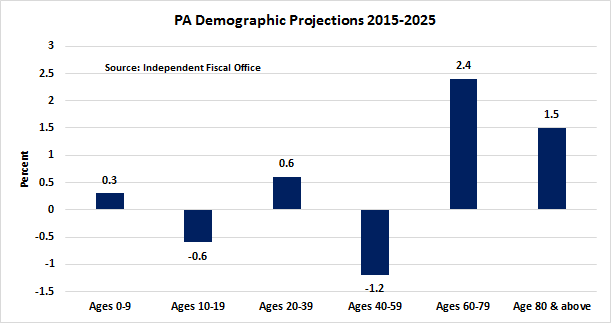
This will put immense pressure on government services. As people age, they drop out of the work force and tend to rely on government assistance more than young people. Couple this with the fact that more people are leaving, rather than moving to Pennsylvania, and you have the makings of a fiscal nightmare.
CF has consistently urged structural spending reforms to address the most expensive items in the budget. The IFO report demonstrates why we can't procrastinate any longer.
The coming fiscal and demographic crisis is both predictable and avoidable. No one can say we weren't warned.